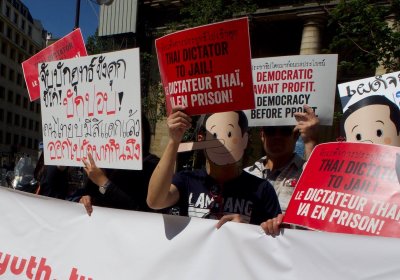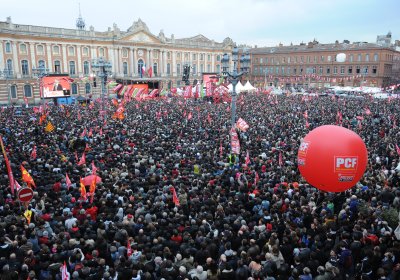The second round of the French local elections was bad news for President Emanuel Macron and his austerity agenda, writes John Mullen.
Paris
French President Emanuel Macron hopes to show bosses and the stock market he has a plan for recovery through the next few months, without half a million people dead or mass rioting in the streets, writes John Mullen.
As Thailand's military dictator, Prime Minister and former General Prayut Chan-o-cha visited Europe last week in a desperate attempt to woo more foreign investment, Thai democracy rights protesters rallied in Paris, London and Bonn, calling for his arrest for crimes against his own people. They also called upon European governments to put human rights before profits.
France has been absorbed by a debate over the right of young Muslim women to wear the hijab, which includes the Islamic headscarf, in state schools.
- Previous page
- Page 4




